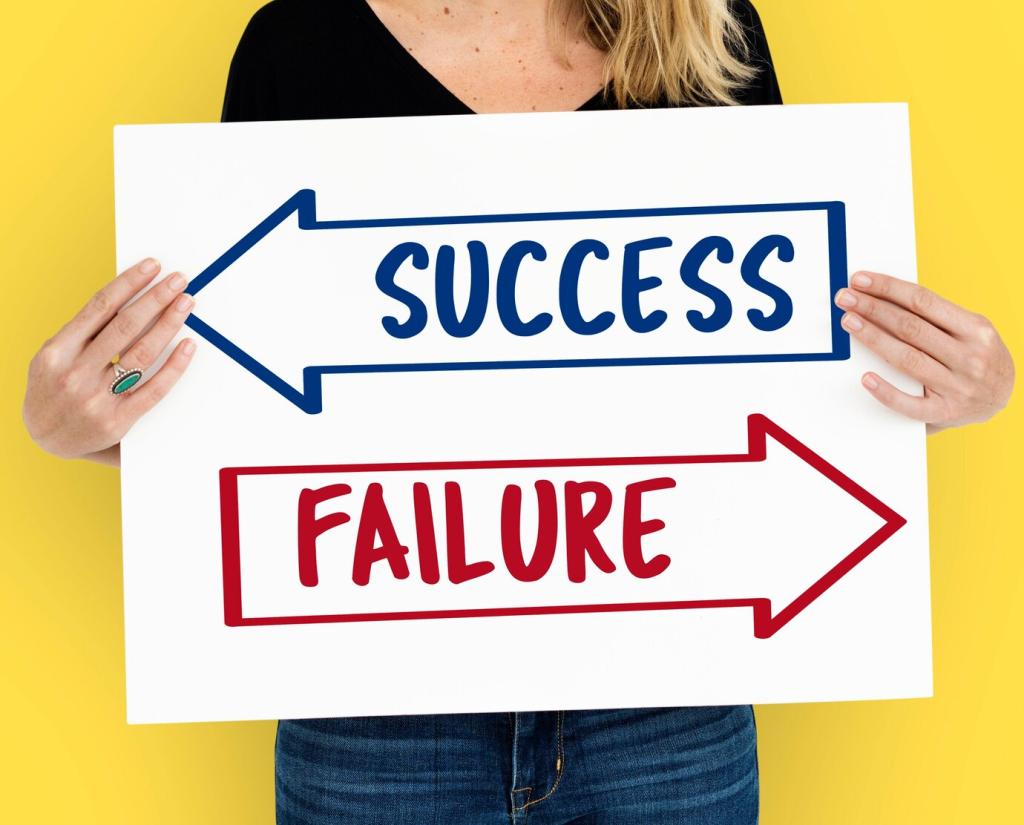Understanding Self-Efficacy in Business Ventures
From Belief to Behavior
When you believe you can influence outcomes, you choose bolder goals, invest in preparation, persist through ambiguity, and pivot earlier when evidence demands it. Low self-efficacy, by contrast, shrinks horizons, delays decisions, and undermines otherwise viable business models.
Signals From Research and Practice
Across startups and small firms, higher self-efficacy correlates with opportunity recognition, resourcefulness, and resilient execution. Practically, founders with strong efficacy run more experiments, learn faster from failures, and compound small wins into durable advantages that competitors misinterpret as luck.
Your Founder Narrative
Write a two-paragraph story about a moment you turned uncertainty into progress. What did you do, think, and feel? Share it in the comments to inspire others, and subscribe for weekly prompts that strengthen your entrepreneurial identity.
The Four Sources of Entrepreneurial Self-Efficacy
Design tasks that you can complete within a day: call ten prospects, ship a landing page, or rewrite your pricing page. Logging visible progress teaches your brain you can act effectively under constraints, turning competence into conviction.

The 72-Hour Experiment
Pick one growth question and design a test you can launch within seventy-two hours. Define success ahead of time, limit scope, and commit to finishing on schedule. Report your results publicly to raise stakes and recruit feedback from this community.

Metrics That Motivate, Not Intimidate
Choose input metrics you control: outreach per day, qualified conversations, or prototypes shipped. Visualize streaks, celebrate consistency, and reset quickly after misses. When numbers serve learning instead of judgment, confidence grows alongside competence.

Debriefs That Build Identity
After each experiment, capture three lines: what happened, why it happened, what you will try next. Invite a teammate to add observations. These short reflections convert isolated events into coherent stories about a capable founder in motion.
Before the Pitch: Rehearsal as Confidence
Rehearse out loud with timers, record yourself, and pressure-test with unfriendly questions. Script the opening thirty seconds to eliminate friction. Use brief breathwork and visualization to anchor presence so your expertise, not adrenaline, leads the room.
During the Storm: Micro-Commitments
When stakes spike, shrink the task. Ask for the next call, the pilot, or the smaller contract. Micro-commitments keep momentum, reveal objections early, and demonstrate quiet confidence that invites collaboration rather than combat.
Aftermath: Bank the Win
Regardless of outcome, write a one-page after-action note. Capture what you controlled, surprises encountered, and upgrades for next time. Share a distilled lesson with peers here, and subscribe to receive a debrief template you can reuse.
Team-Level Self-Efficacy
Start standups with tiny wins linked to behaviors, not heroes. Show dashboards that emphasize progress. Rotate demo leads so everyone experiences visible competence. The more people see the team perform, the more they expect future success—and act accordingly.
Sustaining Self-Efficacy Over the Founder Journey
Sleep, movement, and nutrition are not luxuries; they are multipliers. Protect deep work blocks, set digital boundaries, and batch decisions. Lowering cognitive noise preserves willpower for the hard things that actually build your venture and your belief.
Sustaining Self-Efficacy Over the Founder Journey
Assemble a small circle that gives honest feedback and celebrates progress. Meet monthly with a clear agenda, metrics, and commitments. Borrow conviction from people who remember your potential when a rough week tempts you to forget it.
Sustaining Self-Efficacy Over the Founder Journey
Plan seasons of intensity and recovery. Use theme days for focus, pre-mortems before big pushes, and recovery rituals afterward. By designing stress you can absorb and learn from, you train the muscle of confidence to grow stronger under pressure.
